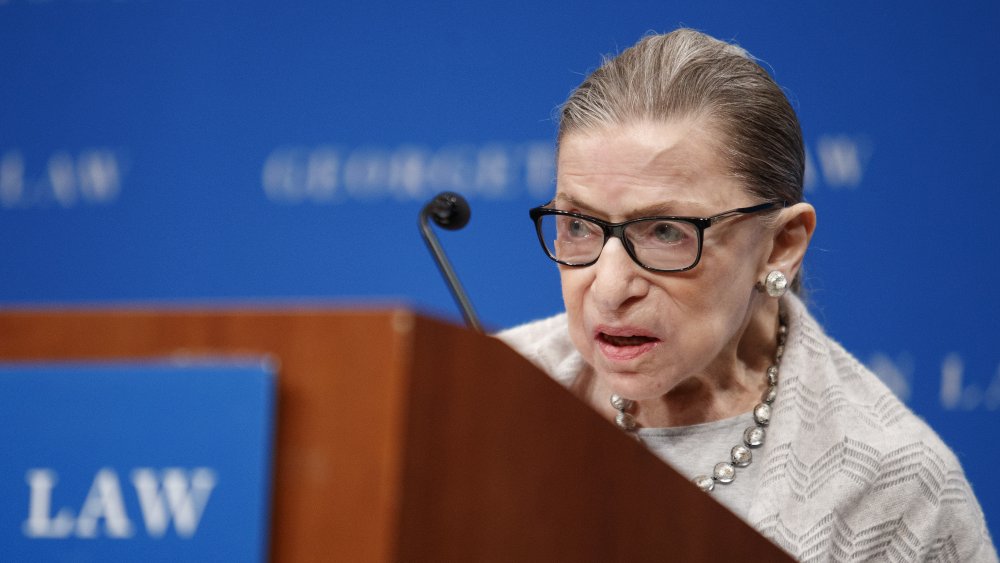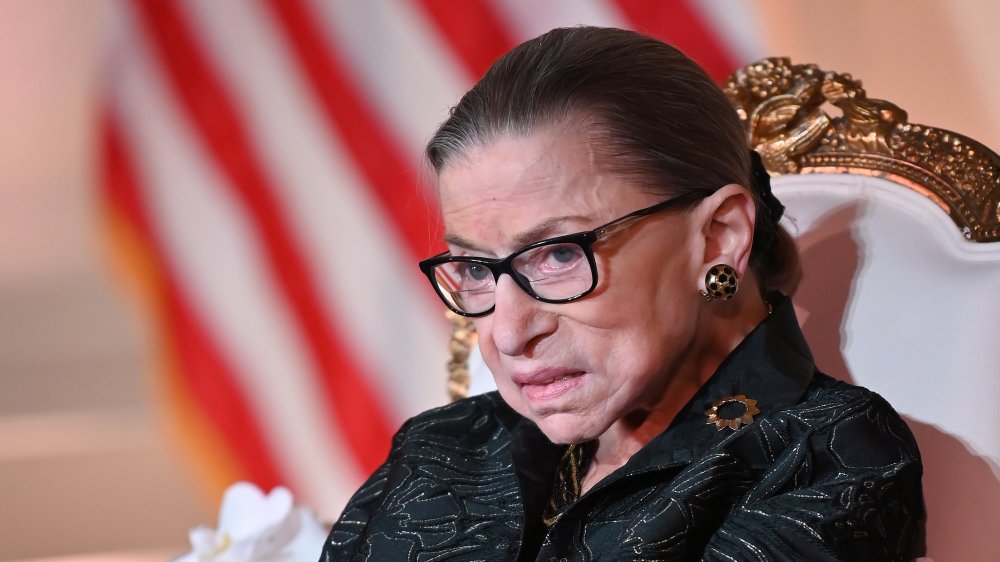Ruth Bader Ginsburg's Most Controversial Moments
While some may point to Supreme Court Justice Ruth Bader Ginsburg's longtime friendship with the late conservative Justice Antonin Scalia as one of her most controversial decisions, those who knew RBG well would say being collegial and actively engaging with others whose opinions differed from hers was her natural default. That's not to say that the trailblazing justice didn't raise a few eyebrows on her way up; after all, she did upend a white male-dominated institution by strategically fighting for equal rights for herself and others every step of her storied career.
As a young activist for the American Civil Liberties Union in the 1970s — back when only three out of every 100 legal professionals were women — Ginsburg wrote a legal brief for the landmark case of Reed v. Reed, the first time in which the Supreme Court ruled that discrimination on the basis of sex violated the Fourteenth Amendment's equal protection clause. The win was significant for Ginsburg's cause of equal justice under the law because it laid the groundwork for a lifetime of expanding rights for women and other marginalized groups. This included fighting for the ratification of the Equal Rights Amendment, which she argued moved "toward a legal system in which each person will be judged on individual merit and not on the basis of an unalterable trait of birth" (via The New Yorker).
Earning her reputation as the Notorious RBG
Even as she fought for women's rights, Ginsburg made waves with feminists due to her criticism of Roe v. Wade, as she regretted that it had been decided based on an argument concerning privacy rather than equal rights. "My approach, I believe, is neither liberal nor conservative," she declared to the Senate Committee on the Judiciary, which was then chaired by Joe Biden, when she was nominated to the Supreme Court in 1993 (via The New Yorker).
More recently, Ginsburg, who worked tirelessly until her last days and reportedly stayed in such great shape that she could bench more than Justice Stephen Breyer and Justice Elena Kagan (via Oyez), continued to work on her legacy with other landmark cases, including writing a withering dissent regarding a ruling that stopped the election recount in 2000, advocating for the passage of the Lilly Ledbetter Fair Pay Act that was signed into law by President Barack Obama in 2009, and the 2015 Obergefell v. Hodges ruling that legalized same-sex marriage (via Teen Vogue).
Not one to go quietly, Ginsburg even left the world with a Ginsburg-worthy final request: "My most fervent wish is that I will not be replaced until a new president is installed" (via NPR).

